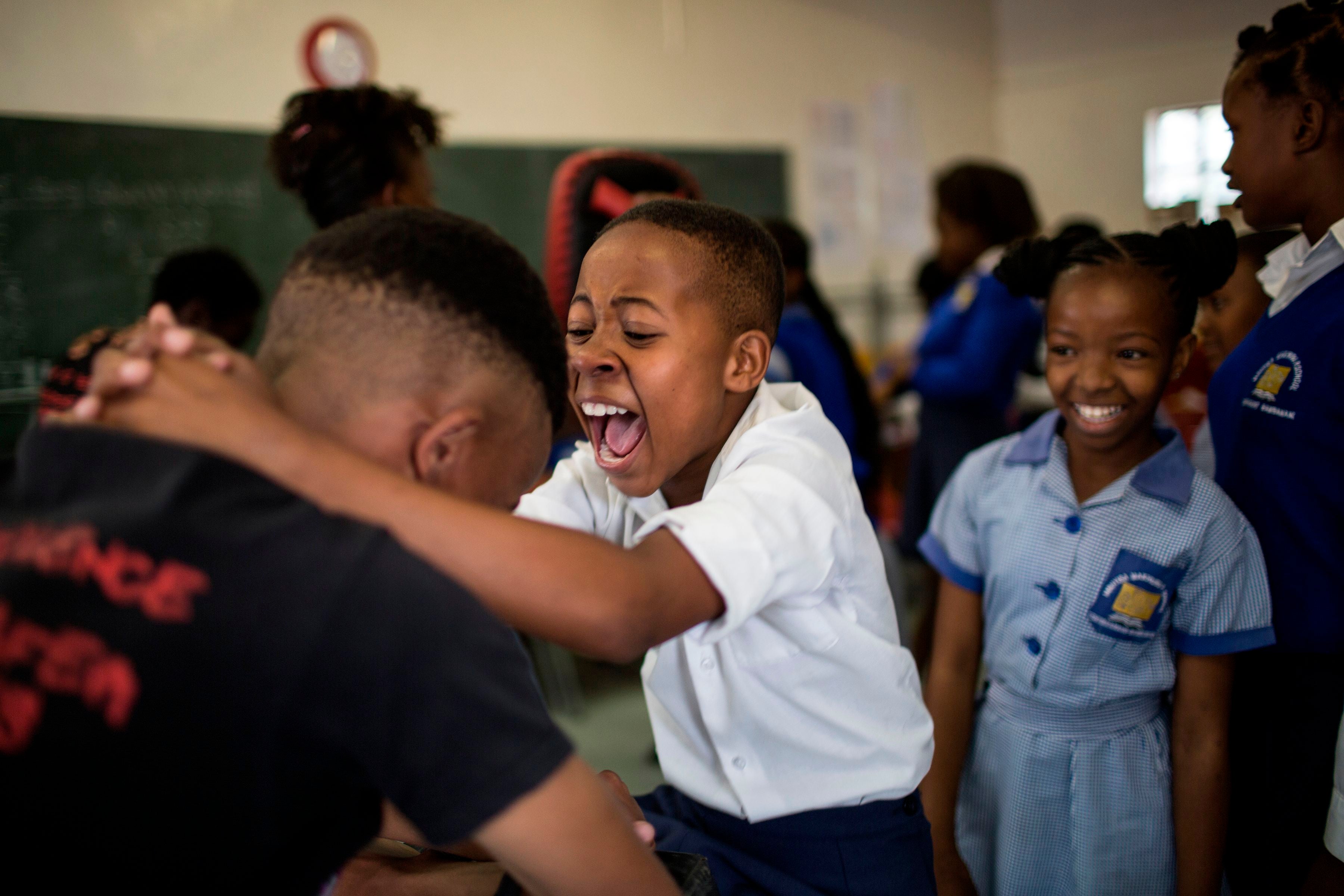Education summit offers test of Boris Johnson’s ‘diplomatic muscle’ after aid cuts
Exclusive: Campaigners fear funding plea could fall short by $1bn

Your support helps us to tell the story
From reproductive rights to climate change to Big Tech, The Independent is on the ground when the story is developing. Whether it's investigating the financials of Elon Musk's pro-Trump PAC or producing our latest documentary, 'The A Word', which shines a light on the American women fighting for reproductive rights, we know how important it is to parse out the facts from the messaging.
At such a critical moment in US history, we need reporters on the ground. Your donation allows us to keep sending journalists to speak to both sides of the story.
The Independent is trusted by Americans across the entire political spectrum. And unlike many other quality news outlets, we choose not to lock Americans out of our reporting and analysis with paywalls. We believe quality journalism should be available to everyone, paid for by those who can afford it.
Your support makes all the difference.Boris Johnson’s cuts to international aid look set to undermine his efforts to secure pledges of $5billion for education in the developing world at an international summit being chaired by the UK this week, campaigners have warned.
There are fears that the recent Commons vote to indefinitely extend the cut - from the United Nations target of 0.7 per cent to 0.5 per cent of GDP - has hit the UK’s “diplomatic muscle” said the development movement One.
The campaign’s UK advocacy head Lis Wallace told The Independent that Mr Johnson was on track to fall as much as $1bn short of the money needed to fund the Global Partnership for Education over the coming five years, putting learning for 175m boys and girls at risk.
She said that failure to hit the target at the London summit on Thursday would amount to a judgement on the UK’s decision to slice £4bn a year from its aid budget in response to the financial crisis caused by the Covid pandemic.
And she warned that, coming after a G7 summit in Cornwall which fell short of expectations, missing the target would set a bad precedent for Mr Johnson’s most high-profile foray onto the international stage this year, when he hosts the UN COP26 climate change conference in Glasgow in November.
“When a government hosts these moments there are expectations,” said Ms Wallace. “We look to them to set the bar, to step up and ask other governments to match that kind of level of ambition.
“It’s a big test of our diplomatic muscle as a country. And it’s happening in the context of the aid cuts and in the context of a parliamentary vote which makes the cuts semi-permanent. That does send a signal to other countries - at the very time that we’re asking them to step up, it looks like we’re stepping back.”
Polling for One suggested that failure at an international summit would reflect badly on Mr Johnson, with 65 per cent saying that having volunteered to host the gathering, it is his personal responsibility to ensure it succeeds, against just 7 per cent who disagreed.
A majority (61 per cent) said Britain was at its best when it shows it is serious about tackling global issues and plays a leading role in tackling the world’s problems.
And more than half (54 per cent) agreed that other countries were more likely to make big commitments at a summit hosted by the UK if Britain itself sets an example.
Mr Johnson’s pledge of £430m for the Global Partnership for Education, announced at the G7 summit, fell short of the £600m sought by some civil society organisations.
It formed part of an overall promise of at least $2.75bn agreed by G7 leaders in Cornwall, also including €700m from the EU, leaving a further $2.25bn to be raised from non-G7 donors, likely to include Australia, China and Scandinavian countries.
Some 68 per cent of those questioned in the poll agreed there was a “moral obligation” on richer countries to ensure every child receives a good education, against just 9 per cent who disagreed. And 53 per cent rejected the idea that it does not matter whether children in poorer countries get a good education or not, against 23 per cent who agreed.
Ms Wallace said: “As an organisation, we were disappointed at the outcome of the G7, which did not come up with a plan to end the Covid pandemic and made commitments to share vaccines which were too little, too late. It looks like we are going to miss the mark at the global education summit, and that doesn’t bode well for COP.
“It seems that, when it comes to our diplomatic efforts, the aid cuts mean we have one hand, if not both hands, tied behind our back when we are asking others to put money in.”
But a Foreign Office spokesperson said: “The target of $5bn has always been a five-year target. At the last Global Partnership for Education replenishment summit in 2018 around 80 per cent of the funding was raised at the summit itself, with the rest coming in across the lifetime of the replenishment period.
“The UK is the largest bilateral donor to the replenishment. We have committed £430m towards the Global Partnership for Education’s replenishment ahead of the Global Education Summit in London later this week. This is our highest ever pledge, with an uplift of 15 per cent.”
Join our commenting forum
Join thought-provoking conversations, follow other Independent readers and see their replies
Comments